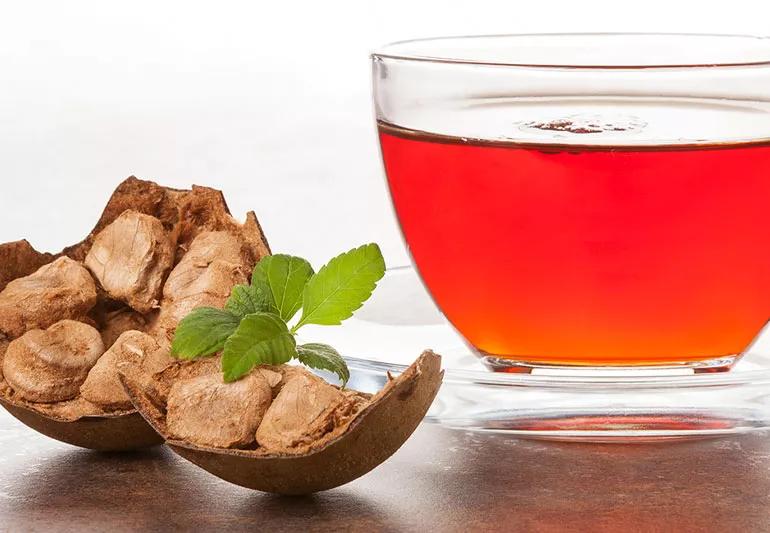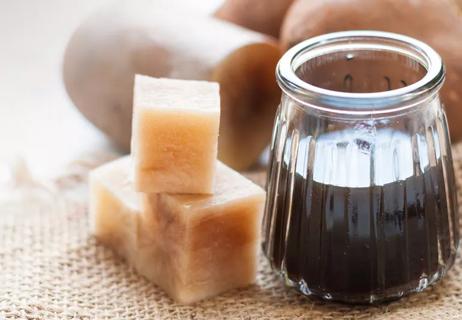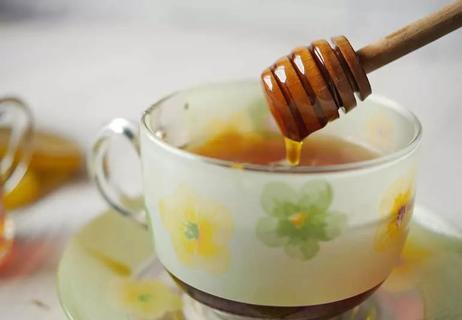Find out whether this natural sugar swap is healthy or hype — and how to use it safely

Monk fruit extract, also called luo han guo fruit extract, is a recent addition to the sugar alternative market in the United States. Unlike some chemically based sugar alternatives, monk fruit extract is considered natural.
Advertisement
Cleveland Clinic is a non-profit academic medical center. Advertising on our site helps support our mission. We do not endorse non-Cleveland Clinic products or services. Policy
Endocrinology and metabolism specialist Anthony Liberatore, MD, talks about whether monk fruit is a healthy sugar replacement.
Monk fruit is a small, round fruit native to southern China. Monk fruit sweetener comes from the mogroside, which is the sweetest part of the fruit.
To make monk fruit sweetener, manufacturers crush the monk fruit, extract its juice and then extract its mogroside from the juice. “Monk fruit mogrosides have a taste that’s over 100 times sweeter than sugar, but they have no calories,” says Dr. Liberatore.
Some evidence suggests that the mogrosides in monk fruit contain good-for-you antioxidants. Commonly found in plant foods, antioxidants fight off free radicals that can lead to health problems like cancer and heart disease.
But there aren’t any studies that confirm monk fruit extract could boost your health. “Monk fruit is new to the U.S. market, and we don’t have solid evidence of any health benefits yet,” says Dr. Liberatore.
Eating less sugar could help you shed pounds if you combine it with other weight loss measures. “Sugar is a source of empty calories, which are calories without nutritional benefit,” says Dr. Liberatore. “Replacing sugar with monk fruit is a good way to cut those empty calories.”
Advertisement
But sugar alternatives are not the fast track to weight loss. In fact, some studies have found that artificial sweeteners can contribute to weight gain by building sugar craving and dependence.
“Focus on your overall diet if you want to cut calories or lose weight,” says Dr. Liberatore. “Don’t rely on a sweetener alone to improve your health or help with weight loss.”
Monk fruit received the “generally recognized as safe” (GRAS) designation from the U.S. Food and Drug Administration. It also has no reported side effects.
But use monk fruit — or any sweetener — in moderate amounts. Just because it’s GRAS doesn’t mean you should consume lots of it every day, notes Dr. Liberatore.
“Monk fruit is a good option for lowering sugar intake,” he says. “But instead of consuming lots of zero-calorie sweeteners, focus on eating fruits, vegetables and whole grains. These foods have vitamins, minerals and other nutrients you need for good health.”
And read the ingredients list on the label before buying monk fruit sweeteners. Many products combine other sweeteners with monk fruit extract — even if the product is called “pure monk fruit.” Some contain erythritol, a sugar alcohol that can cause bloating or stomach upset in some people. Research is also suggesting erythritol may be linked to heart attack and stroke.
If you have diabetes, monk fruit could be a good option for you. Ask your doctor first, though. “People with diabetes have bigger blood sugar spikes after eating sugar than people who don’t have diabetes,” explains Dr. Liberatore. “So using a sugar substitute can help prevent these spikes.”
Monk fruit sweeteners come in powder or liquid forms. If you’re looking to swap out sugar for a more natural alternative, consider these uses:
The ultra-sweet flavor of monk fruit means a little bit goes a long way. And because each product is different, read the package instructions before adding it to your favorite recipes. It may not be a cup-for-cup equivalent to sugar.
Monk fruit extract isn’t a miracle health booster, but it’s a good option when you really want something sweet. If you have a sweet tooth, monk fruit can help you enjoy sweet foods and drinks without sugar.
“But don’t go overboard,” cautions Dr. Liberatore. “Drink plenty of plain water or tea, and eat natural foods without an ultra-sweet taste. Over time, your taste buds adjust, and you may not need to use sweeteners as much.”
Advertisement
Learn more about our editorial process.
Advertisement

High fructose corn syrup is a common sweetener in packaged foods and can contribute to weight gain and inflammation

Erythritol is found in a range of ‘diet,’ ‘sugar-free’ and ‘keto-friendly’ foods — but research has linked it to heart attack and stroke

Although allulose is an FDA-approved sugar substitute, more research is needed to understand its safety

Studies and the FDA say this herbaceous alternative is safe in moderation, so go ahead and sprinkle away!

Xylitol in processed food can increase risk of heart attack and stroke — but there’s no danger in xylitol in oral care products

All-natural, plant-based and low-calorie, but it can also cause some serious digestive discomfort

Fruit is the best option for a healthy sweetener, but limit refined sugar and artificial sweeteners

Wearing a scarf, adjusting your outdoor activities and following your asthma treatment plan can help limit breathing problems

Your diet in the weeks, days and hours ahead of your race can power you to the finish line

When someone guilt trips you, they’re using emotionally manipulative behavior to try to get you to act a certain way